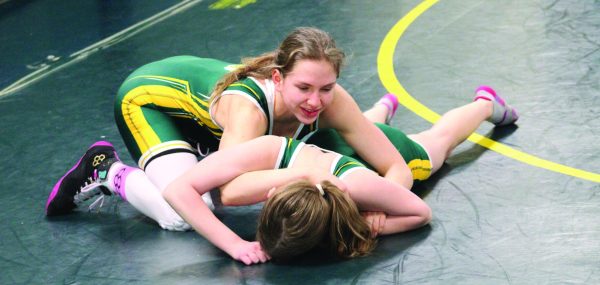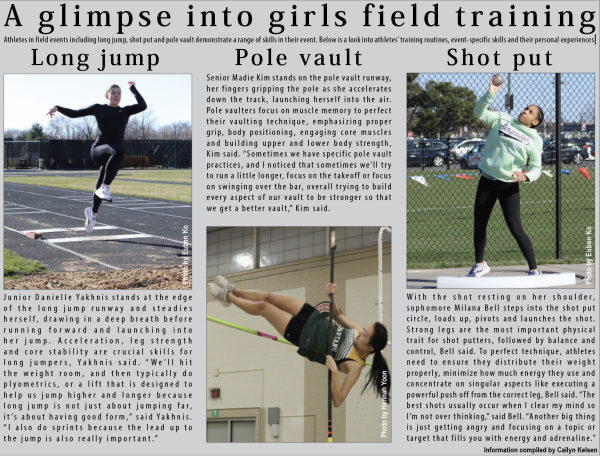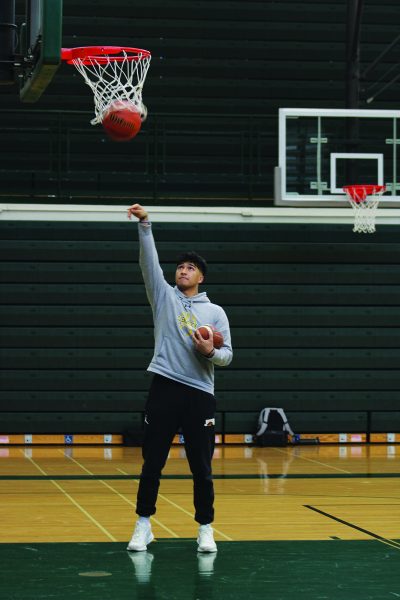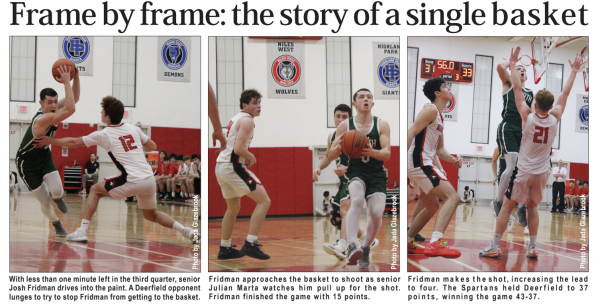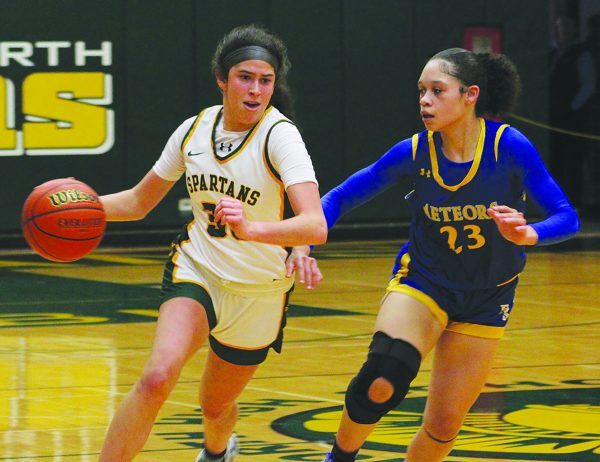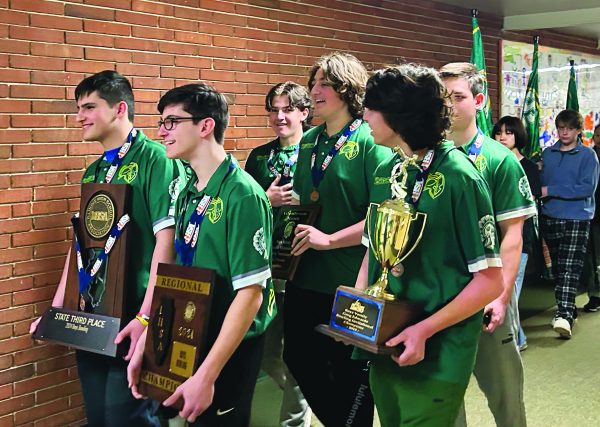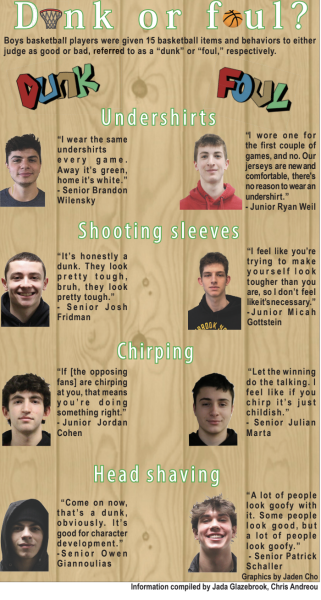Athletes forgo school teams to join ‘the club’
Junior Maya Lambert sits in the bleachers of William Lutz Stadium. She misses playing soccer for the Spartans with her former teammates.
“I just really wanted to jump in and play,” said Lambert. “It looked like so much fun, and watching kind of sucks.”
After playing on the varsity team her freshman year, Lambert decided to compete exclusively with her club team, Sockers FC Chicago.
“It was very difficult because high school was so much fun, and interacting with all the older kids when I was a freshman was a great experience,” Lambert said.
According to Craig Loch, girls varsity soccer head coach, in his five years as coach, only Lambert opted to play solely for her club team and forego the high school team.
“The high school season is in the spring for only three months, so [coaches] have only that amount of time to spend with their players,” said Loch. “For the other nine months, players can play for club teams.”
He said high school rules restrict girls from playing club soccer during the high school season, but “95 percent of players also play club” during the off season.
Trey Bradberry, director of coaching for girls soccer at Sockers FC Chicago, said many clubs do not require year round commitment.
According to Lambert, playing club soccer can increase chances of being recruited by colleges. She said more college scouts attend club soccer tournaments than high school tournaments.
Lambert said she was recruited by Purdue University and has verbally committed to play there.
“Club teams provide a talent level that sometimes isn’t available at the high school level,” said Katie Baumgardner, second assistant coach for the Purdue Women’s Soccer team. “Typically, your club team is filled with life-long soccer players who are all at the same skill level as you, while in high school, [it] can vary.”
Bradberry said that unlike high schools, clubs can draw players from a wide geographic area and be more selective.
Purdue rarely recruits athletes who play only on high school teams, as the exposure from club is so convenient, according to Baumgardner. The more club showcases athletes attend, the easier it is to see them.
Senior James Sanchez also saw the advantages in playing club sports. He transferred after his sophomore year from Glenbrook North to Pioneer High School in Ann Arbor, Michigan, where he plays hockey for the United States National Team Development Program.
“I knew I made the right decision when I [verbally] committed to the University of Michigan,” said Sanchez. “I wouldn’t have gotten there without such a high level of competition surrounding me.”
Sanchez has played club hockey his entire hockey career. He represented Team Illinois for two years, Chicago Mission for two years and Chicago Young Americans for his last two years in Illinois.
“I decided to play club [in high school] because I like to travel, and I love the intensity of fast-paced games,” said Sanchez. “I wanted more opportunities to be seen by both junior and college teams.”
While playing for clubs can make recruitment easier, there are advantages to participating in high school, Baumgardner said.
“We typically recruit from club sports, but often we will take a look at a player in a high school setting once it comes down to the state tournament or a big rivalry game,” said Baumgardner. “Those win or go home games show character that we love to see once they are a part of our team.”


